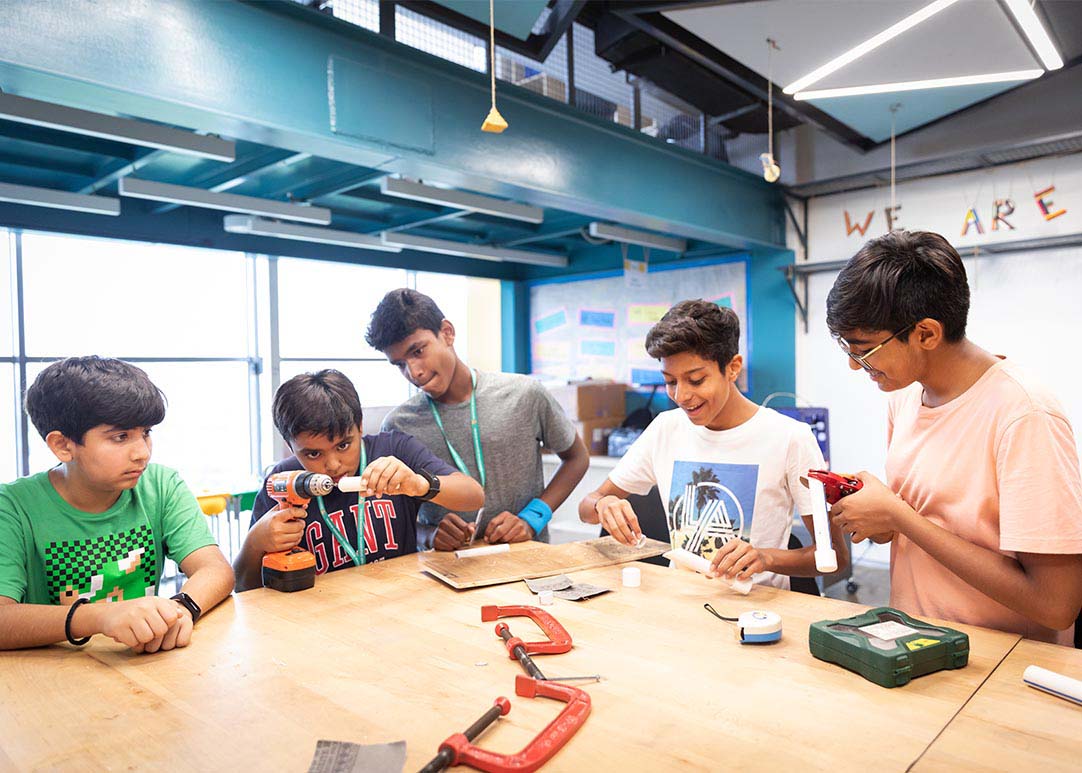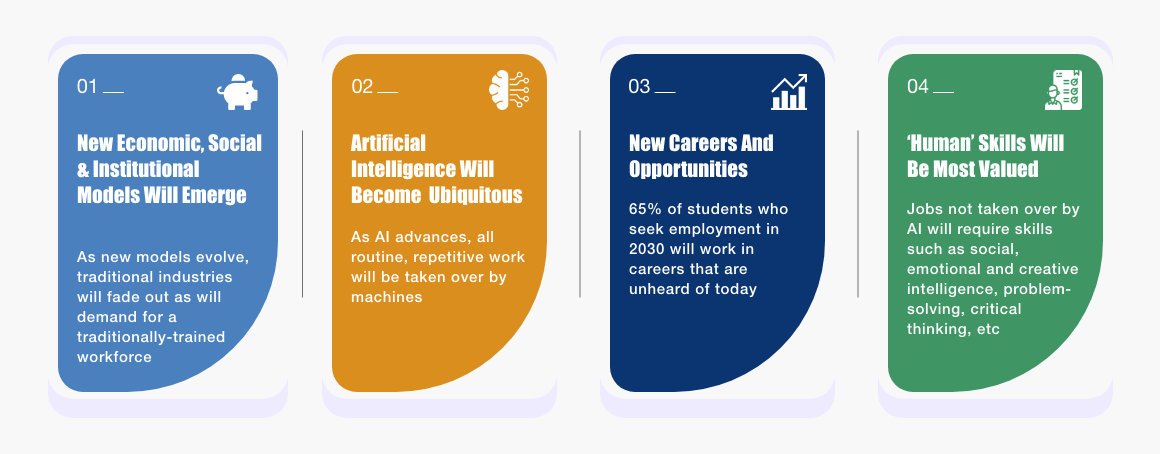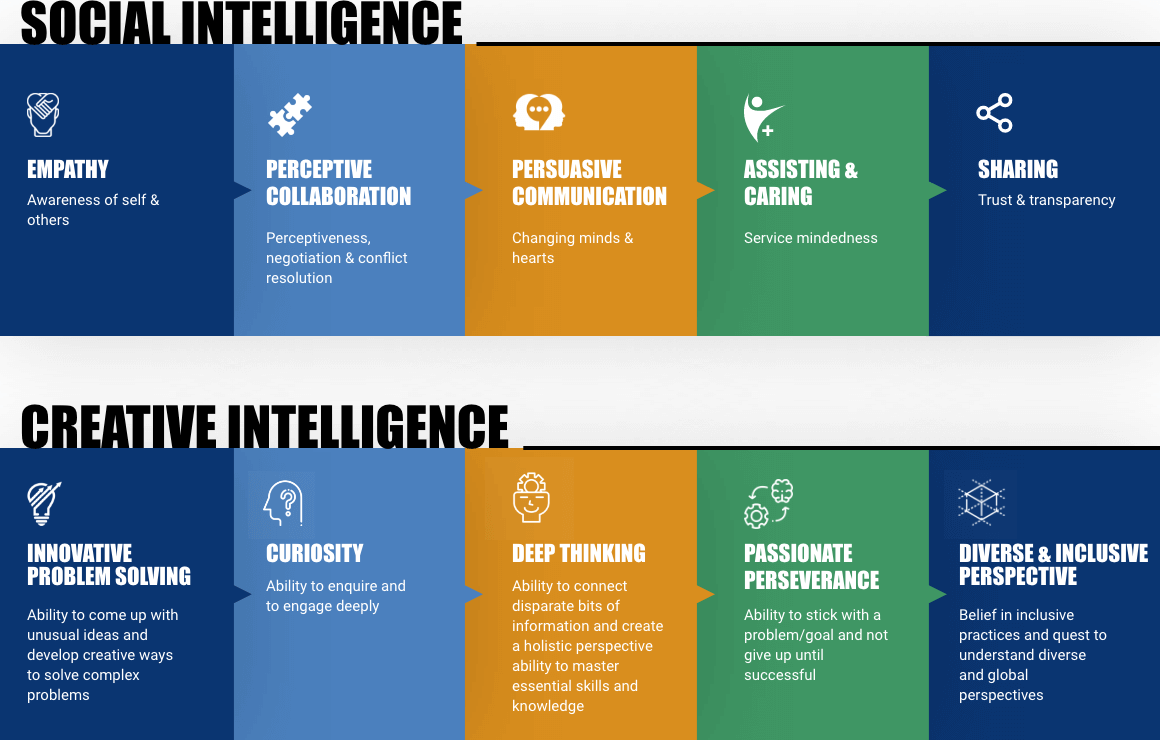
We believe that it is time not merely to transform but to re-imagine education.
Our education system is a legacy of the First and the Second Industrial Revolutions when the purpose of education was to prepare skilled labour for the factory system. Though automation and technological advancement radically altered the way we work, play or communicate in the Third Industrial Revolution (1960- ), the purpose of education, unfortunately, has remained unchanged in our current system of teaching the young. Evidence of dramatic changes is all around us already — artificial intelligence, quantum computing, self-driven cars, genetic engineering, sharing economy, 3D printing, to name just a few. In the near future, the all-encompassing technology- and innovation-driven Fourth Industrial Revolution (2010-) will transform current social, cultural and economic structures into a new world order.
The implications of this tectonic shift will be immense for education, workspaces, and employment and employability.

According to a survey carried out by the Oxford Martin Press (2013 Future of Jobs report), the most important skills relevant to jobs that will not be replaced by technology would be social and creative skills. When we expand some of the findings of this survey and aggregate it with some of what experts are talking about, skills that are most relevant today are: Social Intelligence and Creative Intelligence.

These are intrinsically human traits that young children have in abundance. As educators, it is our responsibility to nurture and hone them to ensure that our children thrive in the future. Content is, of course, important. Numeracy and literacy, digital literacy, subject/discipline knowledge as well as learning of processes and skills are critical as they are the basis on which students will be able to evaluate and internalize new and evolving information.
However, all this is a means to an end. And the end is to prepare students to become proactive and engaged citizens of the world of the future.

As educators, we are committed to ignite that inner will that will propel children to fulfil their promise as social and creative beings by equipping them with the right knowledge and skills and, primarily, by seeding the right attitude. In a transformed ecosystem of education where learning is no longer confined to schools but available any time and any place, we fulfil our commitment by deploying progressive methodologies and pedagogies as well as by bringing expanded opportunities for learning into the classroom.
 Message us
Message us
 TOP
TOP